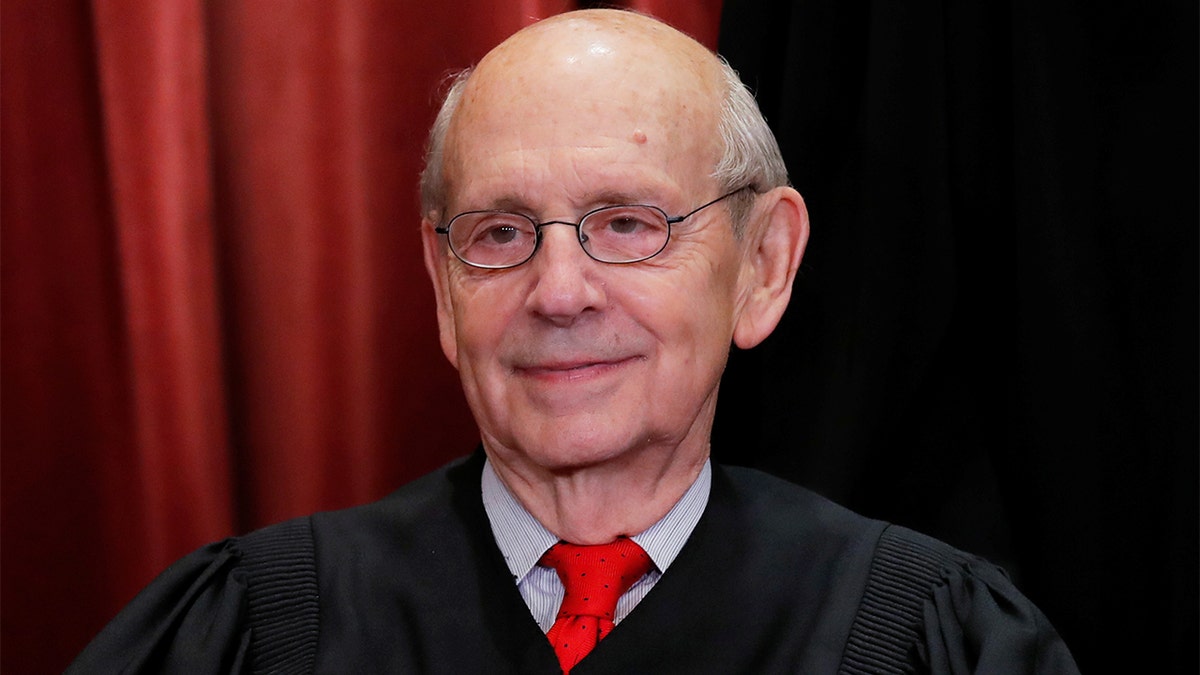Fox News Flash top headlines for April 7
Fox News Flash top headlines are here. Check out what's clicking on Foxnews.com.
Justice Stephen Breyer, one of the foremost liberal justices on the Supreme Court, warned against "court-packing" in a lecture to Harvard Law School on Tuesday even as many on the left are calling for President Biden and the Democratic Senate to do so.
Breyer's lecture was centered around the importance of institutional trust in the court. He said that politically-driven changes to the Supreme Court risked doing damage to the rule of law in the United States.
"Our power, the court's power, has to depend on the public's willingness to respect its decision," Breyer said. "Respect even those decisions they disagree with... even when they think the decision is seriously mistaken."

U.S. Supreme Court Associate Justice Stephen Breyer is seen during a group portrait session for the new full court at the Supreme Court in Washington, U.S., November 30, 2018. REUTERS/Jim Young - RC1E59BB1670
"Proposals have been recently made to increase the number of Supreme Court justices. I'm sure that others will discuss related political arguments," he said. "This lecture reflects my own effort to be certain that those who are going to debate these questions ... also consider an important institutional point. Consider it. Namely, how would court-packing reflect and affect the rule of law itself?"
He continued: "Discussion of institutional change should include discussion of certain background matters such as the trust that the court has gradually built. The long period of time needed to build that trust."
These considerations convince me that it is wrong to think of the court as just another political institution and it is doubly wrong to think of its members as junior league politicians
Breyer discussed the origins of the term court-packing -- when former President Franklin Delano Roosevelt out of frustration with the Supreme Court pushed for a plan that would let him add six new justices to the bench.
"Between 1933 and 1936, the court overturned federal legislation at times the rate it 10 had done previously. So many thought the court had left Roosevelt's initial New Deal recovery plan in tatters," Breyer said.
In the wake of a very successful 1936 election for Roosevelt, he proposed his court-packing plan, framed as a way to help with its workload. "Most people understood the true object of the plan was packing the court," Breyer said.
Shortly thereafter, however, the court stopped habitually ruling against Roosevelt's New Deal policies. Some called it the "switch in time that saved nine."
Some on the left rejected Breyer's guidance, however, as they continued to push for politically motivated court-packing.
"[R]etire," tweeted "The Week" correspondent Ryan Cooper.
"This is like when Georgia's Democratic politicians say they wish MLB didnt pull the All Star Game from Atlanta even as Obama applauded it," Brian Fallon, the executive director at Demand Justice, tweeted. "Those on inside have to say things for their internal politics, but those on outside have different role to play."
Demand Justice itself also doubled down on its court-packing demands.
"Expand the Supreme Court," it said in one tweet.
Biden was asked repeatedly during the presidential campaign whether he would support packing the Supreme Court. He said that he would only tell voters how he felt on the issue after he was elected. But he still has not revealed his position on the issue.
Breyer also cited a number of recent cases as examples of how the court's authority has been widely accepted because of Americans' trust in it.
One of them was Bush v. Gore, the case that essentially decided the 2000 presidential election.
Structural alteration motivated by the perception of political influence can only feed that latter perception, further eroding that trust.
"Harry Reid, the Senate leader, a Democrat who probably also thought that that decision was wrong, later said that the most remarkable feature of the decision could have been ... the nation followed the decision without violent riots, without the throwing of stones in the streets, and the losing candidate, Al Gore, told his supporters don't trash the Supreme Court," Breyer said.
CLICK HERE TO GET THE FOX NEWS APP
Breyer also cited cases upholding the Affordable Care Act, the right to abortion and more liberal causes.
"If the public sees judges as politicians in robes, its confidence in the courts and in the rule of law can only diminish, diminishing the court's power, including its power to act as a check on other branches," he said.






